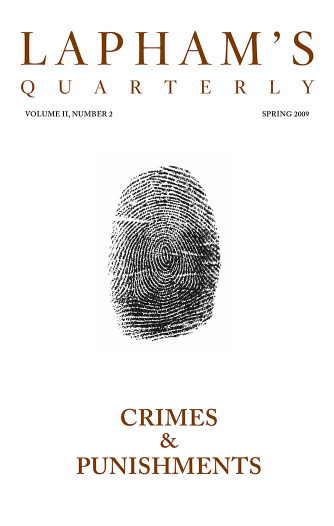I follow him to serve my turn upon him.
We cannot all be masters, nor all masters
Cannot be truly followed. You shall mark
Many a duteous and knee-crooking knave,
That doting on his own obsequious bondage,
Wears out his time much like his master’s ass
For nought but provender, and when he’s old, cashiered.
Whip me such honest knaves. Others there are
Who, trimmed in forms and visages of duty,
Keep yet their hearts attending on themselves,
And throwing but shows of service on their lords,
Do well thrive by them; and when they have lined their coats,
Do themselves homage. These fellows have some soul,
And such a one do I profess myself.
For, sir,
It is as sure as you are Roderigo,
Were I the Moor, I would not be Iago;
In following him, I follow but myself.
Heaven is my judge, not I for love and duty,
But seeming so for my peculiar end.
For when my outward action doth demonstrate
The native act and figure of my heart
In complement extern, ’tis not long after
But I will wear my heart upon my sleeve
For daws to peck at. I am not what I am.
From Othello, the Moor of Venice. In this, the opening scene of the play, Othello’s officer Iago laments that he has been passed over for a promotion and informs Roderigo that he plans to bring about Othello’s ruin. Some critics have referred to “honest Iago,” a character so adept at deceiving others that they do not suspect his dishonesty. “His passion for destruction,” wrote the critic Harold Bloom, “is the only creative passion in the play.”
Back to Issue

